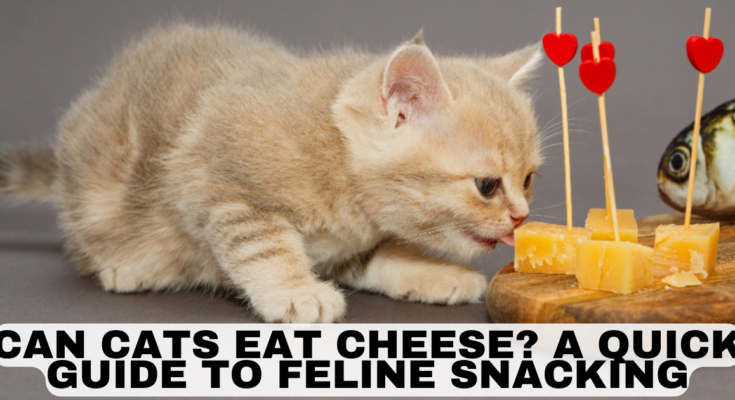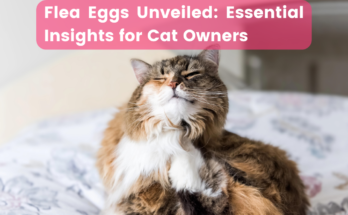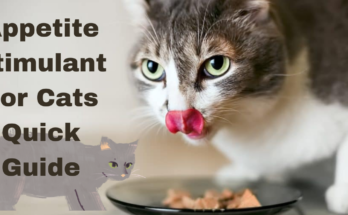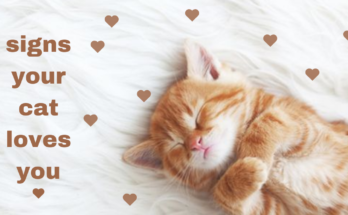It is common knowledge that cats find cheese to be quite alluring if you have ever seen them sniffing about your cheese board or attempting to bite on your cheese sandwich. Cheese, along with other dairy items, like milk, are bad for our feline companions, however. Giving cream or milk to cats to drink was formerly very usual, but we know that doing this is not an unhealthy option. While cheese is not poisonous to cats, many of them are really lactose intolerant, which means that the sugar in dairy products is not effectively digested by them, which may lead to stomach problems when they consume milk and cheese. Providing quality cat food over cheese is preferable, even if your cat is not sensitive to dairy products. Cheese is particularly heavy in salt and fat and lacks the essential nutrients that cats need to be healthy. Can Cats Eat Cheese? As discussed below
Can a cat eat cheese?
In a nutshell, cats can indeed eat cheese. If you do offer cheese to your cat, it should be in moderation and in tiny amounts.
You are OK with sometimes offering your cat a slice of cheese. Alternatively, it’s OK to conceal your cat’s medication inside the cheese.
It is advisable to limit the amount of human-made food your cat consumes to prevent potential health issues.
Why do cats love cheese?
Cats, being carnivores, have refined taste receptors that identify rich and meaty tastes, ensuring their health and well-being.
Fat-rich meals stimulate hunger, leading to the consumption of cheese despite its negative effects.
Cats are less interested in sugary meals due to their less sensitive taste receptors. The fat content of your chocolate or ice cream likely attracts customers more than the sweetness. Chocolate is highly hazardous to cats, so it is advised to keep it out of their reach at all times.
Why is cheese bad for cats?
Since most cats are intolerant to dairy products, consuming milk, cream, or cheese may swiftly result in digestive problems, including vomiting, constipation, or diarrhea. The evolution of the digestive system in felines provides the reason. Because they are obligated carnivores, cats need a diet high in meat to survive and stay healthy. For this reason, if dairy is on the menu, their digestive tract may likely get upset. Cheese presents a challenge for cats when it comes to supper since their bodies are unable to manufacture enough enzymes to adequately digest milk.
Can kittens eat cheese?
The question arises whether cheese is unhealthy for kittens, as milk is a crucial part of their diet. When a cat reaches the adult stage, its ability to produce the enzyme lactase, which allows it to enjoy meals that include milk, is gone. This means that cats cannot acquire the enzyme again for food that is solid like cheese.
Is non-dairy cheese OK for cats?
Can Cats Eat Cheese? more about What are the disadvantages of non-dairy varieties of cheese if the dairy component is the issue? As it happens, this may not be the best idea either. The components of cheese are another factor contributing to its unsuitability as a cat treat. Cheese, whether dairy or non-dairy, is abundant in fat, salt, and spices, as well as other components like onion or garlic that may be poisonous to cats. Before giving your cat that much-desired cheese cube, ensure that you read the food label. Consult your veterinarian for safer solutions if your cat paws at each cheese chunk.
Which Cheeses Are Safe for Cats to Consume?
If you want to offer your cat some cheese and you know that she is not allergic to dairy products or lactose intolerant, then some types of cheese are better for her than others.
Look choose hard cheeses that are additive-free and plain. Some things to think about are:- Cheddar
– Swiss
– Parmesan
– Provolone
– Gouda
– Goat cheese (despite having less vitamin D and more fat than certain other cheeses)
The softest cheeses, which often have far more lactose, are among those to stay away from. Avoid doing:- Cottage cheese
- – Cream cheese
- – Mozzarella
- – Brie
- – Blu cheese
- – Camembert
- – American cheese: a manufactured food item with a high carbohydrate content
How to Feed Cheese to Cats?
Cheese’s high fat and protein content attracts cats, who often go crazy over this human delicacy. Therefore, persuading your cat to consume it ought to be simple.
Dr. Bayazit said, “A little cheese as a snack or spread over a meal is perfectly OK if your cat doesn’t get sick from eating something new like cheese.”
– It is fine to give your cat a tiny quantity of cheese as a reward once you have tried it, watched them closely, and discovered that it doesn’t upset their stomach.
– Cats may safely consume a portion of food in the form of a die on occasion, according to Dr. Bayazit.
– Limit cheese consumption to a small quantity that they can bite and chew on.
– Remember that cheese is a treat and not a substantial addition to their diet.
– Treats may account for up to 10% of a cat’s daily caloric intake, but Dr. Bayazit suggests limiting cheese consumption to 5% of daily caloric intake due to its high fat and salt content.
– Try restricting your cat’s cheese consumption to times when you must conceal medicine.
– Hard, mature cheeses like Swiss or Cheddar contain less lactose and are thus less prone to create issues compared to soft cheeses like mozzarella or Brie.
– Cheese might be unhealthy for cats due to certain components, so steer clear of cheeses containing molds, such as blue cheese, and spices like garlic and onions.
– Certain types of cheese may be poisonous to dogs since they contain penicillium.
– You might also try this delicious, grain-free puree from Inaba, which has a cheese taste. It is fine to give your cat a tiny quantity of cheese as a reward once you have tried it, watched them closely, and discovered that it doesn’t upset their stomach. Once again, according to Dr. Bayazit, cats may safely consume a portion of food in the form of a die on occasion. Limit it to a small quantity of cheese that they can bite and chew on.
Dr. Bayazit advised
Even picky, fussy cats will eat if you sprinkle some on their meal. “Remember that cheese is a treat and not a substantial addition to their diet,” advises Dr. Bayazit.
Although treats may account for up to 10% of a cat’s daily caloric intake, Dr. Bayazit suggests limiting cheese consumption to 5% of daily caloric intake due to its high fat and salt content.
Try restricting your cat’s cheese consumption to times when you must conceal medicine.
Even if your cat may be craving a creamy Camembert, resist the urge and remind them, “Hard cheese only, dude,” since the kind of cheese counts. Compared to soft cheeses like mozzarella or Brie, hard, matured cheeses like Swiss or Cheddar contain less lactose and are thus less prone to create issues. Cheese might be unhealthy for cats due to certain components. Avoid blue cheese, garlic, and onions, as they contain penicillium, which can be poisonous to dogs.
You might also try this delicious, grain-free puree from Inaba, which has a cheese taste.
When It’s Not Alright to Eat Cheese
The Cummings Vet Medical Facility at Tufts University states that if your cat has a cardiac issue or needs to reduce their salt consumption, you should not feed them cheese. If your cat is following a low-sodium diet, they should also avoid bread, potato chips, fast food, and deli meat in addition to cheese.
Summary
Cheese is a popular treat for cats due to its rich, meaty taste, but it is not suitable for cats due to their lactose insensitivity. They cannot digest milk and cheese, leading to digestive problems. Cats can eat cheese in moderation, but it should be in small amounts. Cats are less interested in sugary meals, so chocolate or ice cream may be more appealing. Non-dairy cheese is not suitable for cats due to its high fat, salt, and spices content, as well as potentially poisonous components like onion or garlic.
Can Cats Eat Cheese? Cheese is safe for cats if they are not allergic to dairy products or lactose intolerant. Hard cheeses like Cheddar, Swiss, Parmesan, Provolone, Gouda, and goat cheese are better for cats. Soft cheeses like cottage cheese, cream cheese, mozzarella, Brie, Blu cheese, Camembert, and American cheese should be avoided. Cats can safely consume a small amount of cheese as a reward but should limit it to 5% of their daily caloric intake due to its high fat and salt content. Hard, mature cheeses like Swiss or Cheddar are less prone to issues. If your cat has a cardiac issue or needs to reduce salt consumption, avoid cheese.





Your articles are extremely helpful to me. May I ask for more information?
Thank you so much for taking the time to read my article! I’m thrilled to hear that you found it interesting. If you have any questions or if there’s anything specific you’d like to know more about, feel free to ask. I’ll try my best to help you .
I enjoyed reading your piece and it provided me with a lot of value.
Thank you so much for taking the time to read my article! I’m thrilled to hear that you found it interesting. If you have any questions or if there’s anything specific you’d like to know more about, feel free to ask. I’ll try my best to you .
Thank you for being of assistance to me. I really loved this article.
Thank you for your articles. I find them very helpful. Could you help me with something?
I want to thank you for your assistance and this post. It’s been great.
The articles you write help me a lot and I like the topic
I have realized some new elements from your site about computers. Another thing I have always considered is that computers have become an item that each home must have for most reasons. They offer convenient ways in which to organize homes, pay bills, go shopping, study, listen to music and also watch tv series. An innovative solution to complete every one of these tasks has been a mobile computer. These computer systems are mobile, small, robust and portable.
I’ve really noticed that credit improvement activity must be conducted with tactics. If not, chances are you’ll find yourself causing harm to your rank. In order to reach your goals in fixing your credit history you have to see to it that from this time you pay your entire monthly dues promptly in advance of their planned date. It is definitely significant because by not really accomplishing so, all other methods that you will decide to use to improve your credit standing will not be powerful. Thanks for revealing your thoughts.